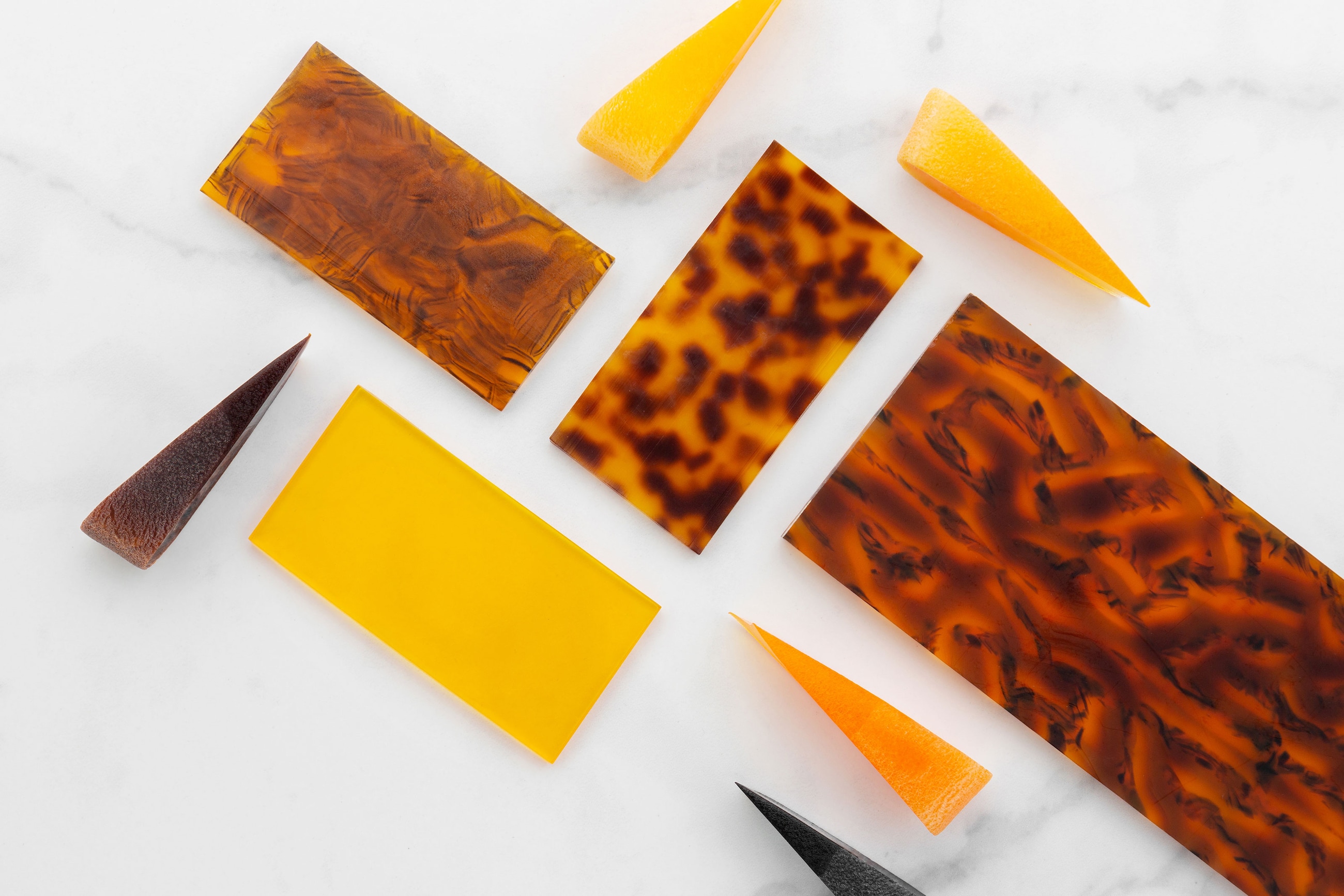Sustainability is deeply rooted at the core of EssilorLuxottica, both as an essential part of its DNA and its corporate responsibility to help people see more and be more. With increasing pressure on raw materials, tightening of industry regulations and changing consumer expectations, EssilorLuxottica is radically adapting its business models by stepping up its investments in sustainable material innovations for eyewear. The Company continues to make bold moves across its entire production cycle, with a shift from fossil-based materials to bio-based materials, which efficiently use resources in line with its environmental goals outlined in its Corporate Social Responsibility program, ‘Eyes on the Planet’. The program features a specific “Eyes on Circularity” pillar, aimed at reducing the impact on the planet through a ‘4R’s program’: “Research- Reduce- Reuse- Recycle”.
In this context, last year EssilorLuxottica and Mazzucchelli 1849 started a collaboration that includes, among other objectives, an assessment of the sustainability performance of Mazzucchelli’s alternative materials offering. Mazzucchelli 1849, an Italian company based in Castiglione Olona, is a worldwide leader in the manufacturing and distribution of sheets made of Cellulose Acetate, polymer of natural origin, traditionally used in the production of optical and sunglass frames.
Recently, EssilorLuxottica and Mazzucchelli developed the first comparative Life Cycle Assessment (LCA) on bio-acetate according to the ISO 14040/14044 standards on LCA. It aims at assessing the environmental performance of the bio-acetate produced by Mazzucchelli, compared to industry standard acetate.
According to the global ASTM D6866 test method, the bio-acetate contains around 65% of bio-content compared to the average bio-content of 40% of industry standard acetate. The increased percentage of bio-content is obtained from a bio-based plasticizer typically derived from renewable sources like cereals, beet or sugar cane. The bio-plasticizer is used to perfectly substitute traditional fossil-based plastics. According to the LCA, the bio-based acetate shows better environmental performances, when compared to the production of industry standard acetate, for some impact categories that were investigated such as “Global warming potential” (CO2 equivalent emissions) Moreover, it is fully biodegradable according to the highest international standards.

Photo © Mazzucchelli 1849
The bio-acetate is now used for some of the Company’s most iconic brands as well as its new sustainability-driven collections.
EssilorLuxottica has strongly promoted the development of this LCA study on bio-acetate, together with Mazzucchelli, to raise awareness on product sustainability and catalyze efforts in the optical industry to achieve common goals by moving towards more sustainable products and promoting consumer transparency. The Company believes that collaboration with stakeholders is an integral part of redesigning its products and processes as well as developing new business models in order to contribute to its sustainable development and value creation efforts over the long-term.
EssilorLuxottica is proud to contribute to build a sustainable future for all.